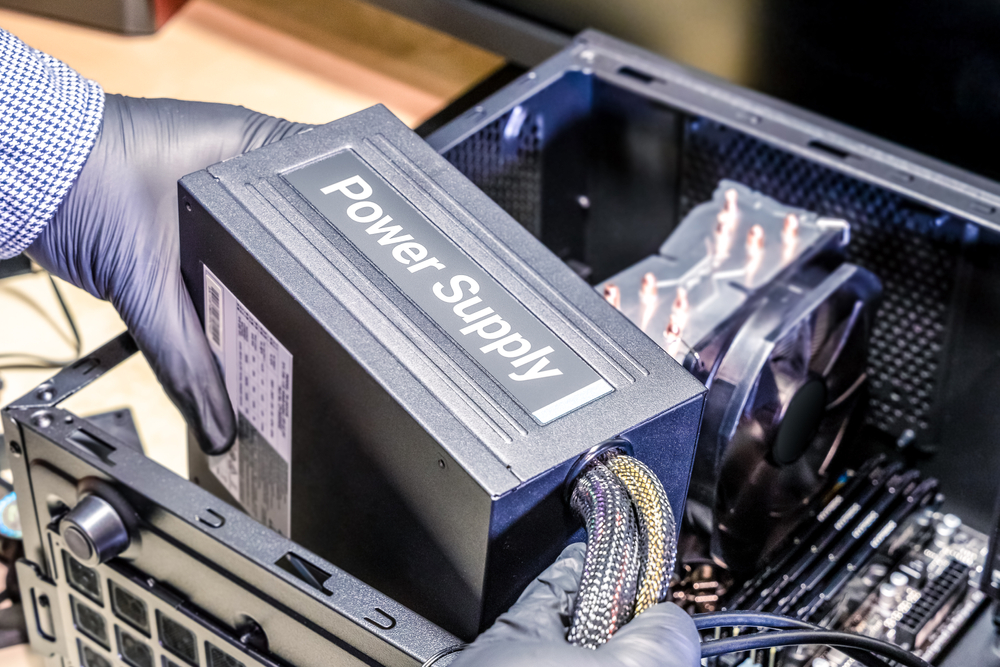In the world of IT hardware, every component plays a crucial role in ensuring optimal system performance. One of the most critical yet often overlooked components is the computer power supply. Whether you’re building a custom PC or upgrading an existing system, understanding the importance of a computer power supply is essential for system efficiency, stability, and longevity.
What is a Computer Power Supply?
A computer power supply, commonly known as a Power Supply Unit (PSU), is responsible for converting electrical energy from a wall outlet into usable power for a computer. It distributes power to components such as the motherboard, CPU, graphics card, and storage devices. Without a reliable PSU, even the most powerful computer hardware can fail to function properly.
Importance of a High-Quality Computer Power Supply
Many users focus on IT hardware components such as CPUs and GPUs while neglecting the computer power supply. However, investing in a high-quality PSU ensures:
- Stable Power Distribution: Prevents voltage fluctuations that can damage sensitive components.
- Energy Efficiency: Reduces electricity consumption and lowers operational costs.
- System Longevity: Protects computer hardware from premature failure due to inconsistent power delivery.
- Safety Measures: Includes features like surge protection, overvoltage protection, and temperature control.
Key Features to Consider When Choosing a Computer Power Supply
Selecting the right computer power supply requires careful consideration of several factors. Here are the most critical features:
1. Wattage Capacity
The wattage of a PSU determines how much power it can supply to the system. A standard office PC may only need 400-500W, whereas high-performance gaming or workstation builds may require 750W or more.
2. Efficiency Rating (80 Plus Certification)
Efficiency is measured using the 80 Plus Certification, which categorizes PSUs into different levels:
- 80 Plus Standard: 80% efficiency
- 80 Plus Bronze: 82-85% efficiency
- 80 Plus Silver: 85-88% efficiency
- 80 Plus Gold: 87-90% efficiency
- 80 Plus Platinum: 89-94% efficiency
- 80 Plus Titanium: 90-96% efficiency
A more efficient computer power supply reduces heat output and operational costs.
3. Modular vs. Non-Modular PSU
- Non-Modular: All cables are permanently attached, making cable management challenging.
- Semi-Modular: Some cables are removable, offering a balance between convenience and affordability.
- Fully Modular: All cables are detachable, allowing for better airflow and easier installation.
4. Power Rails and Connectors
A high-quality PSU features multiple power rails to prevent overloading. Additionally, it should have the necessary connectors for your computer hardware, including:
- 24-pin ATX connector (Motherboard)
- 8-pin CPU connector
- PCIe connectors (for GPUs)
- SATA and Molex connectors (for storage and peripherals)
5. Safety and Protection Features
A reliable computer power supply should include built-in protection mechanisms such as:
- Overvoltage Protection (OVP)
- Undervoltage Protection (UVP)
- Short Circuit Protection (SCP)
- Overcurrent Protection (OCP)
- Overtemperature Protection (OTP)
Choosing the Right PSU for Your Computer Hardware
Your IT hardware setup dictates the type of PSU you should choose. Here are some recommendations based on different usage scenarios:
- Basic Office PC: 400-500W, 80 Plus Bronze, Non-Modular PSU
- Gaming PC: 650-850W, 80 Plus Gold, Semi-Modular PSU
- Workstation or Server: 1000W+, 80 Plus Platinum/Titanium, Fully Modular PSU
Always ensure that the computer power supply you select provides enough headroom for future upgrades.
Common Mistakes to Avoid When Buying a Computer Power Supply
Many users make mistakes when choosing a PSU. Here are some common pitfalls to avoid:
- Underestimating Power Requirements: Always calculate the total wattage needed for your IT hardware.
- Ignoring Efficiency Ratings: A low-efficiency PSU generates excessive heat and consumes more electricity.
- Buying Cheap, Unbranded PSUs: Poor-quality power supplies can lead to system instability and component damage.
- Not Checking Compatibility: Ensure the PSU fits your case and has the required connectors for your computer hardware.
Maintaining and Troubleshooting Your Computer Power Supply
Even the best computer power supply can face issues over time. Here’s how you can maintain and troubleshoot your PSU:
Maintenance Tips
- Keep the PSU dust-free by cleaning it regularly.
- Ensure proper airflow inside the case to prevent overheating.
- Use a UPS (Uninterruptible Power Supply) to protect against sudden power outages.
Common Power Supply Issues & Solutions
- PC Won’t Turn On: Check if the PSU is properly connected and switched on.
- Random Shutdowns or Restarts: May indicate an overloaded PSU or overheating.
- Strange Noises or Burning Smell: Replace the PSU immediately as it may be failing.
Conclusion
A computer power supply is a vital component of any IT hardware setup. Investing in a high-quality PSU ensures efficient power delivery, system stability, and long-term reliability. Whether you are a gamer, a business professional, or a system builder, choosing the right computer power supply will enhance the overall performance of your computer hardware. Always prioritize quality, efficiency, and safety when selecting a PSU to power your system.
